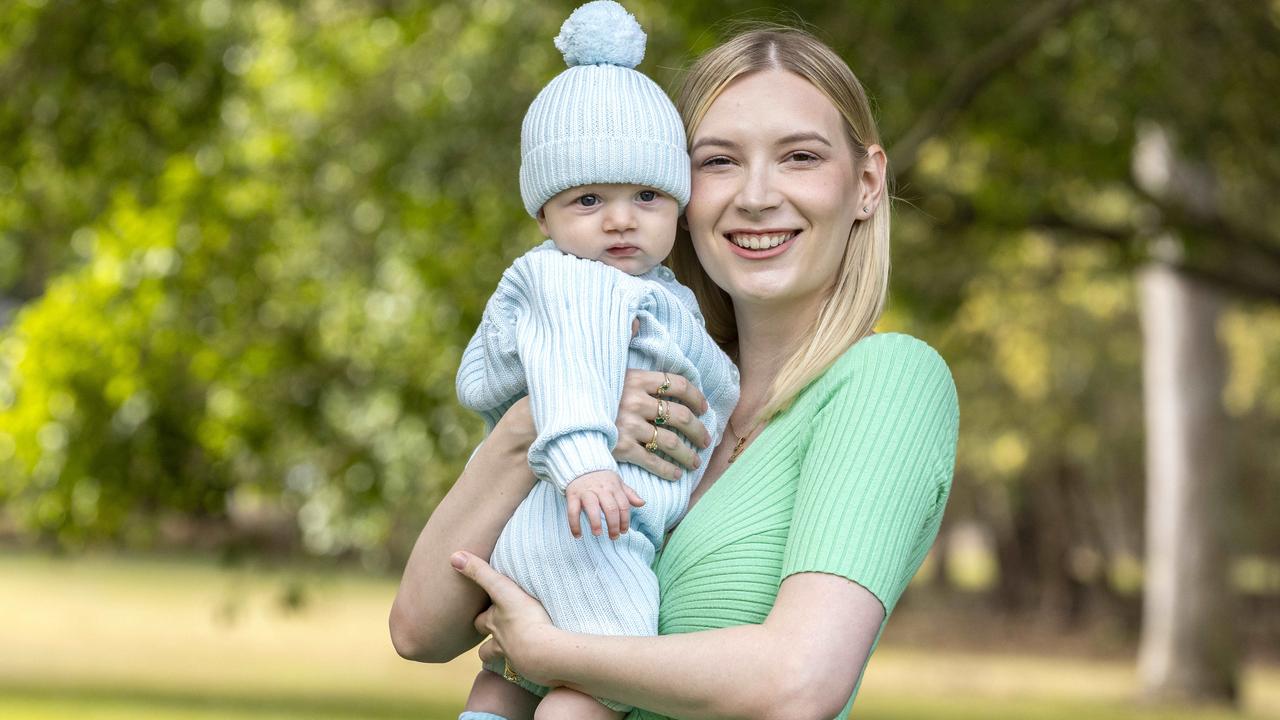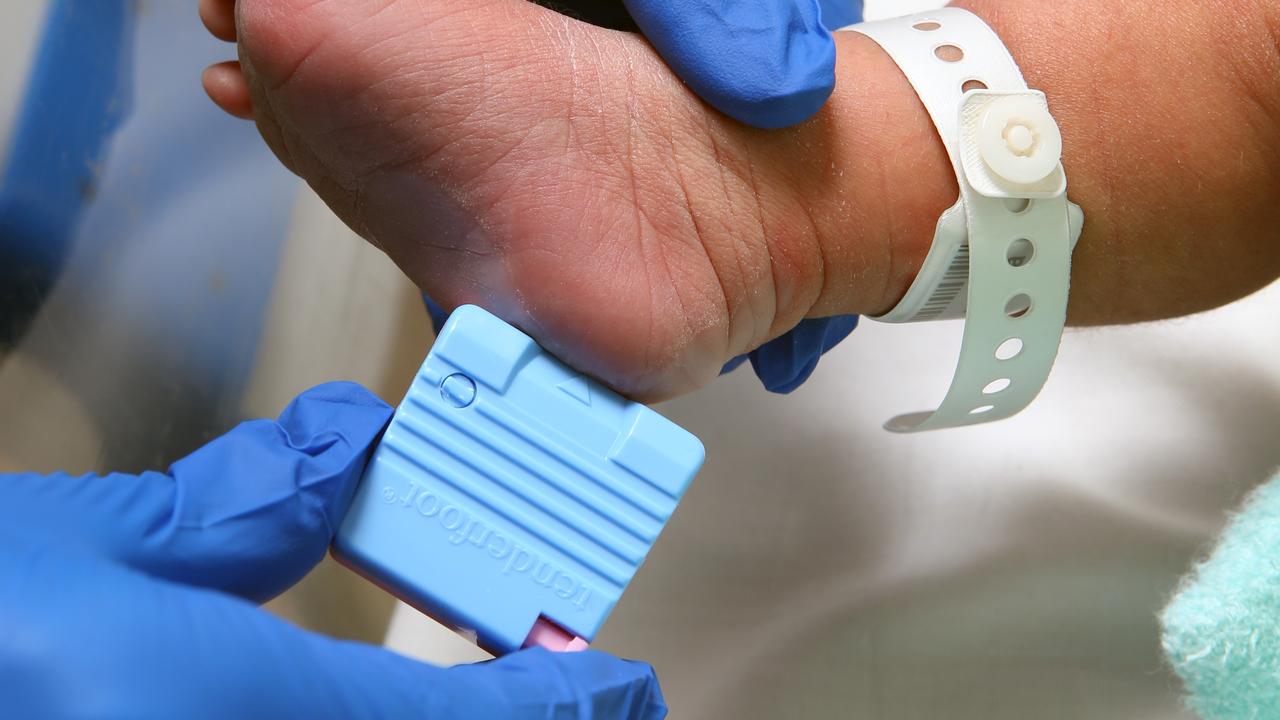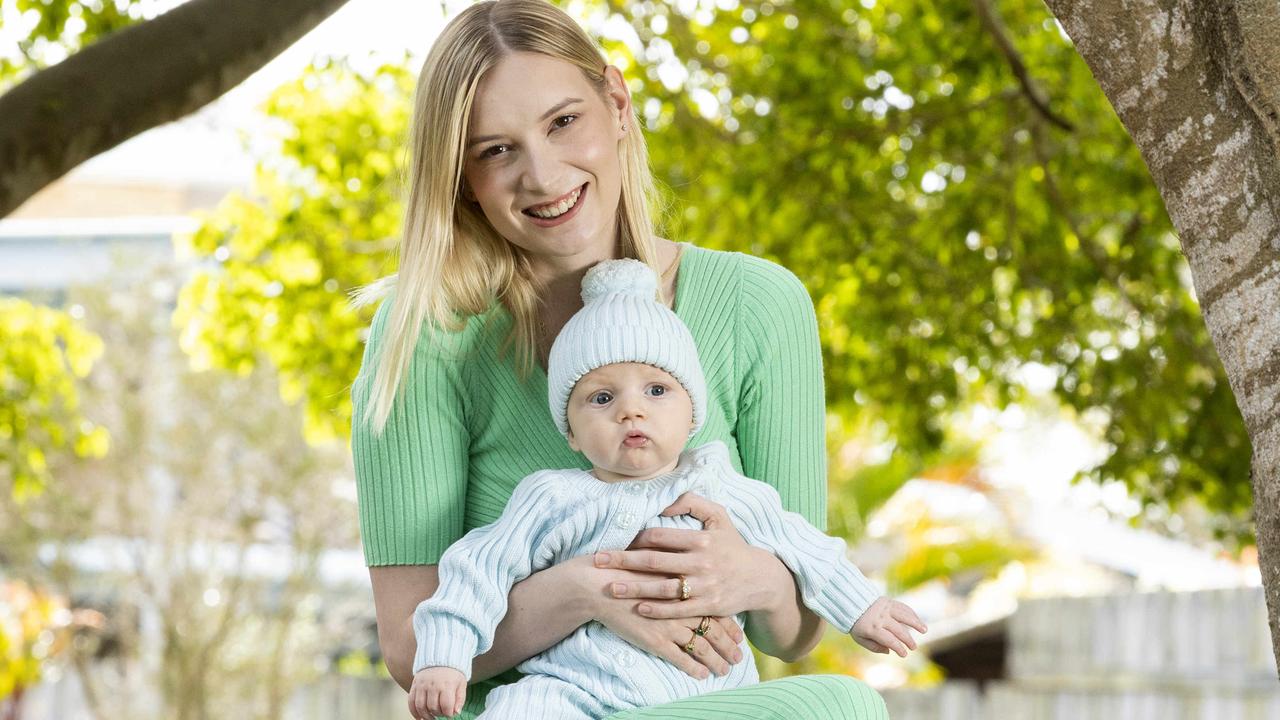World-first, ‘gamechanger’: Qld’s lifesaving newborn tests
Queensland infants will be the first in the world to receive a revolutionary genetic test that will detect hundreds of conditions and spark lifesaving early intervention.

QLD News
Don't miss out on the headlines from QLD News. Followed categories will be added to My News.
Queensland newborns will be the first in the world to receive a gamechanging heel prick 2.0 test that will ultimately detect hundreds of genetic conditions and spark lifesaving early intervention.
It is hoped the groundbreaking targeted genetic testing technology for the blood test will enhance the standard heel prick test that currently detects only 32 disorders.
The current newborn blood spot screening (NBS) was implemented in 1968 and the Queensland government last year added spinal muscular atrophy (SMA) and severe combined immunodeficiency (SCID).
Tens of thousands of the state’s babies will play the vital role in helping to build a database for a multitude of additional conditions for pathology testing – all of which will have treatment available. As the program expands over time, new condition scan be added when intervention or treatment become available.

The federal government is funding University of New South Wales researchers $5.5m to set-up the project – with Queensland at the centre of the pilot.
The plan is to establish Australia as a global powerhouse in the ever-evolving area of genetic and genomic screening technologies.
“There has been a lot of groundwork and partnerships established between Queensland Health, Pathology Queensland, the technology developers and UNSW researchers. Therefore there is a foundation upon which to build this next step in the state,” UNSW associate professor Natalie Taylor said.
Assoc Prof Taylor’s expertise is putting the new technology into practice.
The 2.0 test is capable of improving the accuracy of detecting conditions currently included in the standard NBS but will add many conditions like sickle cell enemia, biotinidase deficiency and X-ALD.
It even has the capability of adding conditions in the future that currently do not have a good method of screening, like familial hypocholesterolimia and Wilson’s disease.
With parental consent, 60,000 babies will be offered the new test at the same time as the current heel prick across Queensland hospitals as part of the trial.
“A key part of this research project is to optimise consent processes for genomic newborn screening and we are co-designing these with stakeholders. Once consent is in place, we will then be able to start testing the technology in the NBS program,” Assoc Prof Taylor said.
The funding is part of the $600m Medical Research Future Fund’s National Critical Research Infrastructure Initiative.

“Current screening technology uses something called biochemical screening. This works differently in different states but in Queensland there are six tests used to assess a blood spot across the 32 conditions currently screened for.
“It provides data on conditions that may not be able to be treated and also presents results that may be uncertain,” Assoc Prof Taylor said.
“With this new technology we can add conditions, in agreement with the national program, when a treatment or intervention becomes available for a particular condition, so long as the health system has the care pathways established and the resources to support families through management of the condition,” she said.
Assistant Minister for Health Ged Kearney said the new test was gamechanging technology “that not only has the potential to reduce diagnosis time frames to ensure newborns receive urgent care immediately, but also ensure babies can have the best possible start in life”.
Zahlia Hood, from Wishart on Brisbane’s southside, said when her baby George was given the standard heel prick test at birth it gave her reassurance that he was being tested for a range of conditions.
“To expand the number of genetic illnesses detected is amazing and gives doctors the chance to intervene with early treatment. George cried a little when he had the blood test but ultimately it is all over quickly and well worth it,” she said.



